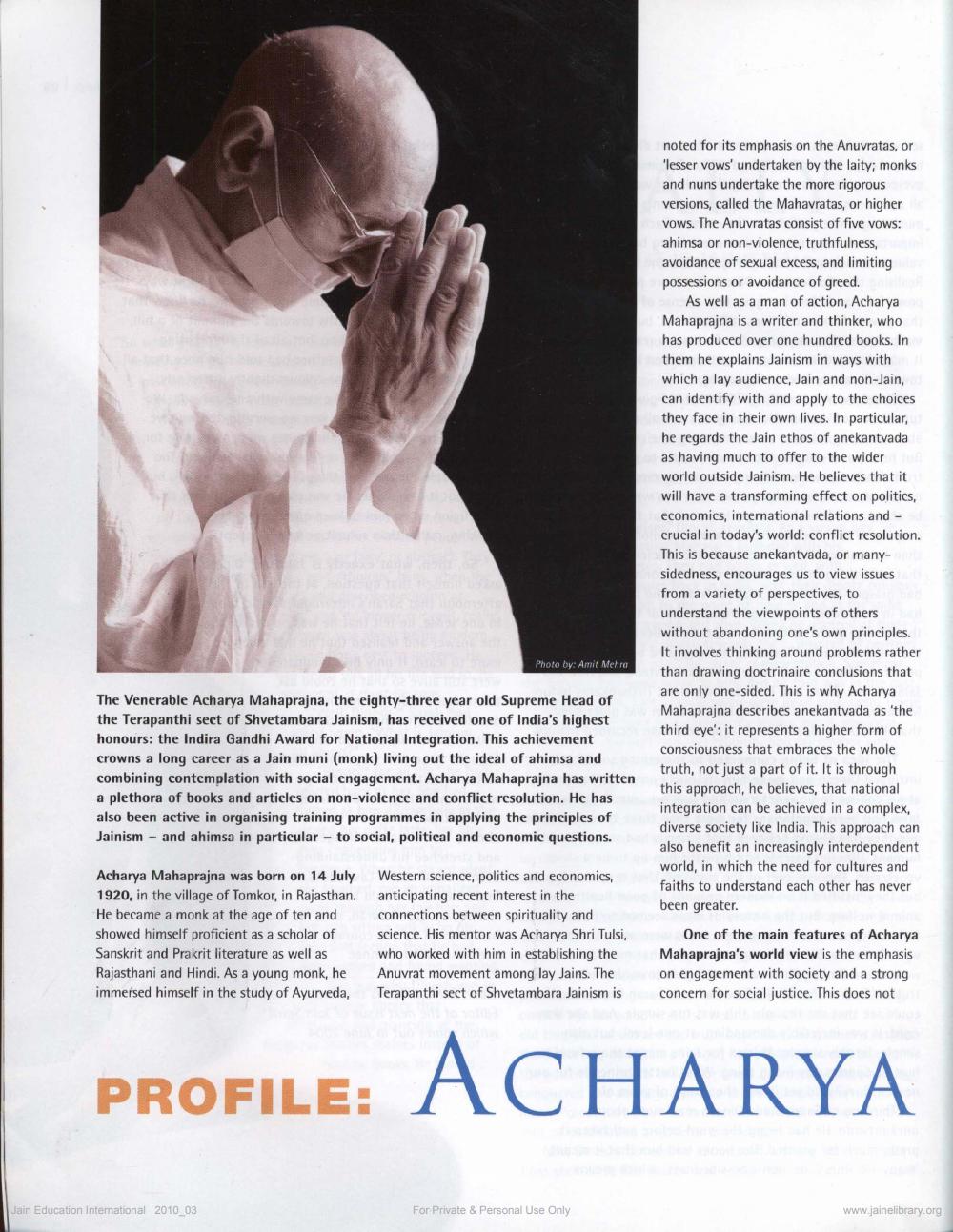Book Title: Jain Spirit 2004 03 No 18 Author(s): Jain Spirit UK Publisher: UK Young Jains View full book textPage 8
________________ noted for its emphasis on the Anuvratas, or "lesser vows' undertaken by the laity; monks and nuns undertake the more rigorous versions, called the Mahavratas, or higher vows. The Anuvratas consist of five vows: ahimsa or non-violence, truthfulness, avoidance of sexual excess, and limiting possessions or avoidance of greed. As well as a man of action, Acharya Mahaprajna is a writer and thinker, who has produced over one hundred books. In them he explains Jainism in ways with which a lay audience, Jain and non-Jain, can identify with and apply to the choices they face in their own lives. In particular, he regards the Jain ethos of anekantvada as having much to offer to the wider world outside Jainism. He believes that it will have a transforming effect on politics, economics, international relations and - crucial in today's world: conflict resolution. This is because anekantvada, or manysidedness, encourages us to view issues from a variety of perspectives, to understand the viewpoints of others without abandoning one's own principles. It involves thinking around problems rather than drawing doctrinaire conclusions that are only one-sided. This is why Acharya Mahaprajna describes anekantvada as 'the third eye': it represents a higher form of consciousness that embraces the whole truth, not just a part of it. It is through this approach, he believes, that national integration can be achieved in a complex, diverse society like India. This approach can also benefit an increasingly interdependent world, in which the need for cultures and faiths to understand each other has never been greater. Photo by: Amit Mehra The Venerable Acharya Mahaprajna, the eighty-three year old Supreme Head of the Terapanthi sect of Shvetambara Jainism, has received one of India's highest honours: the Indira Gandhi Award for National Integration. This achievement crowns a long career as a Jain muni (monk) living out the ideal of ahimsa and combining contemplation with social engagement. Acharya Mahaprajna has written a plethora of books and articles on non-violence and conflict resolution. He has also been active in organising training programmes in applying the principles of Jainism - and ahimsa in particular - to social, political and economic questions. Acharya Mahaprajna was born on 14 July 1920, in the village of Tomkor, in Rajasthan. He became a monk at the age of ten and showed himself proficient as a scholar of Sanskrit and Prakrit literature as well as Rajasthani and Hindi. As a young monk, he immersed himself in the study of Ayurveda, Western science, politics and economics, anticipating recent interest in the connections between spirituality and science. His mentor was Acharya Shri Tulsi, who worked with him in establishing the Anuvrat movement among lay Jains. The Terapanthi sect of Shvetambara Jainism is One of the main features of Acharya Mahaprajna's world view is the emphasis on engagement with society and a strong concern for social justice. This does not PROFILE: ACHARYA Jain Education International 2010_03 For Private & Personal Use Only www.jainelibrary.orgPage Navigation
1 ... 6 7 8 9 10 11 12 13 14 15 16 17 18 19 20 21 22 23 24 25 26 27 28 29 30 31 32 33 34 35 36 37 38 39 40 41 42 43 44 45 46 47 48 49 50 51 52 53 54 55 56 57 58 59 60 61 62 63 64 65 66 67 68 69 70
